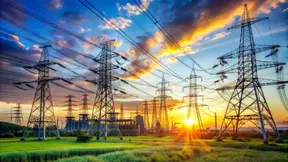Trump Trade Chief Slams Australia Over Aluminium Dispute
- admin928749
- Mar 3
- 2 min read

Australian companies are facing some heat from Donald Trump’s trade chief, who’s accusing them of dumping cheap aluminium into the US. This could be a major setback for the Australian government in its push to get an exemption from the tariffs Trump’s administration put in place.
Peter Navarro, Trump’s former trade advisor, doubled down on the argument that the 25% tariffs on steel and aluminium were necessary to protect American jobs and industries. He said, “The era of unchecked imports undermining American industry is over. The United States will no longer be a dumping ground for heavily subsidised and unfairly traded aluminum.”
Navarro also went after Australia and Canada, accusing them of "frontal assaults" on US industries. He compared Australia’s trade practices to those of China and Russia, saying both countries, which the US sees as competitors, were a big part of the problem. He claimed, “Australia’s heavily subsidised smelters operate below cost, giving them an unfair dumping advantage” and noted the close ties between Australia and China that he believes distort global aluminium trade.
In 2023, Australian exports to the US included about $503 million worth of aluminium, and $378 million worth of iron and steel.
In an attempt to get an exemption from these tariffs, Treasurer Jim Chalmers met with US Treasury Secretary Scott Bessent in Washington last week. Chalmers highlighted how important the Australia-US partnership is, especially with a two-to-one trade surplus favoring the US, plus the significant investment power of Australia’s superannuation industry.
Former Prime Minister Malcolm Turnbull managed to secure an exemption from the tariffs during Trump’s first term, and now the Albanese government is facing pressure to pull off the same deal. But according to Chalmers, it’s going to be a lot harder to get that exemption this time around.
Navarro also mentioned that before Joe Biden’s presidency, voluntary restraint agreements were in place to slow down exports, but since then, exports have been on the rise.
Chalmers himself admitted that getting an exemption now will be tough, especially given the changing political landscape.






































Comments